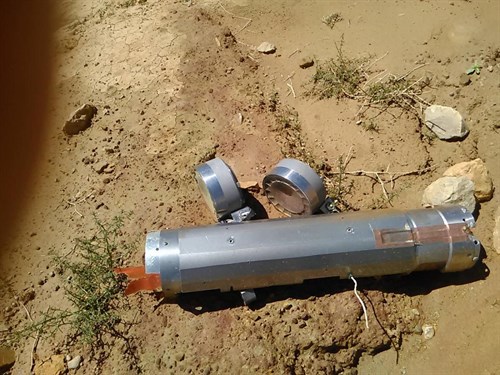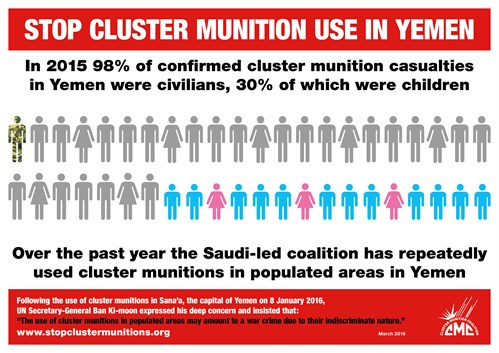06 May 2016
US should investigate possible violation of cluster bomb export law
Stop producing and exporting cluster bombs

A failed BLU-108 canister, with two submunitions still attached, that was delivered by a CBU-105 Sensor Fuzed Weapon during an attack on the quarry of the Amran Cement Factory on February 15, 2016. © 2016 Private
According to US law, the US must not export cluster bombs that result in more than 1% unexploded submunitions after use. But as pointed out today by Human Rights Watch, US-made cluster bombs recently used in Yemen by the armed coalition led by Saudi Arabia resulted in much more than 1% unexploded submunitions – worsening the threat that cluster munition remnants pose to civilians after use.
US law also requires a special mention in export agreements stating that cluster bombs must not be used in civilian-populated areas. Cluster bombs in Yemen have hit densely populated areas, causing multiple civilian casualties.
“It appears to be impossible for the United States to enforce its current law on cluster munitions exports,” said Megan Burke, Director of the Cluster Munition Coalition.
The Cluster Munition Coalition calls on the United States to investigate the outcomes of cluster bomb use in Yemen, including whether the weapons were used in violation of US law.
Some 119 states have joined the 2008 Convention on Cluster Munitions, recognizing that no technical fixes or maximal dud rate could prevent the civilian suffering caused by these indiscriminate weapons.
“The only way to ensure that no lives or limbs are claimed by cluster munitions in the future is to eliminate those weapons altogether. The United States should stop producing and exporting cluster munitions, and join the Convention,” added Burke.



